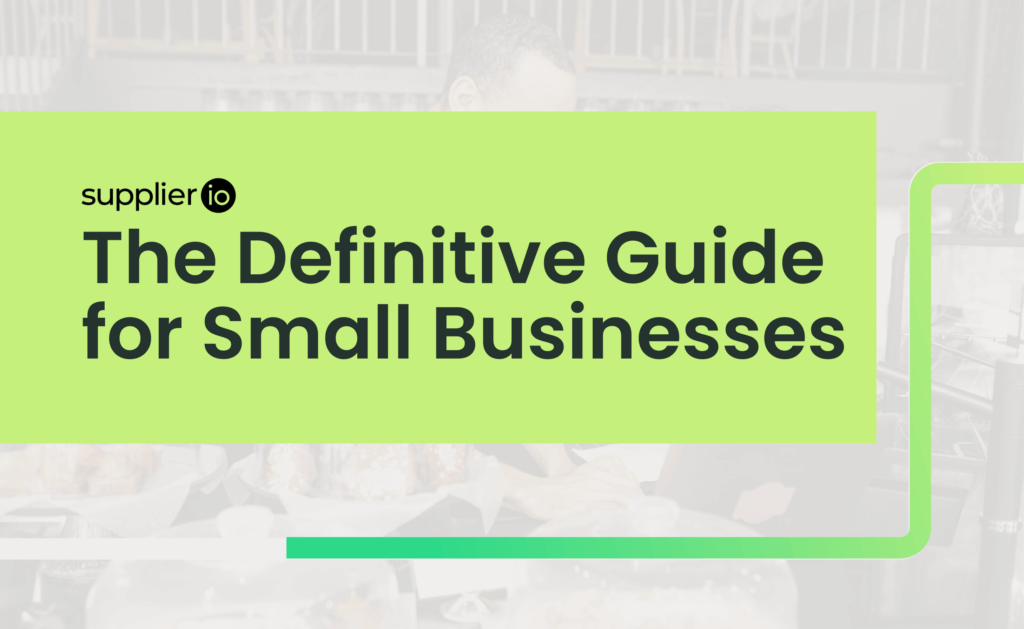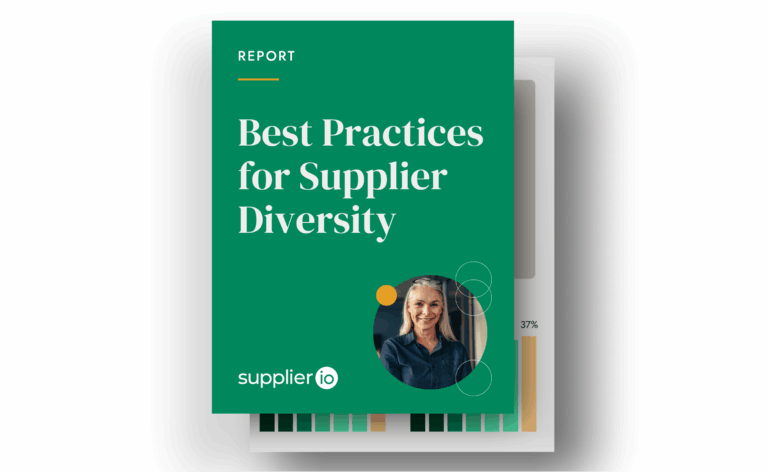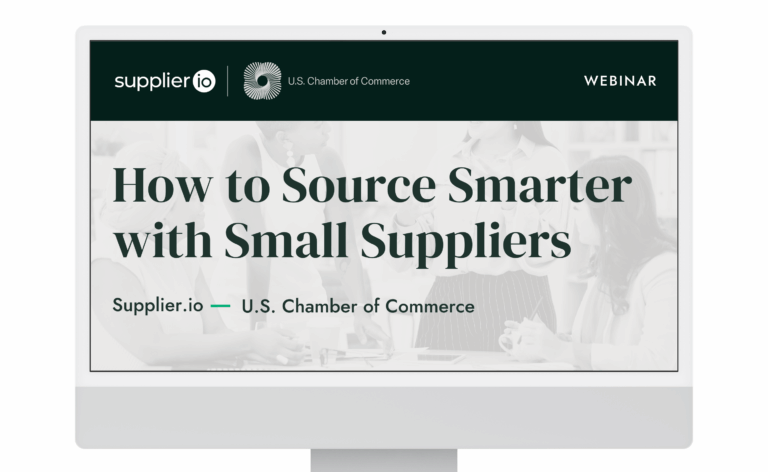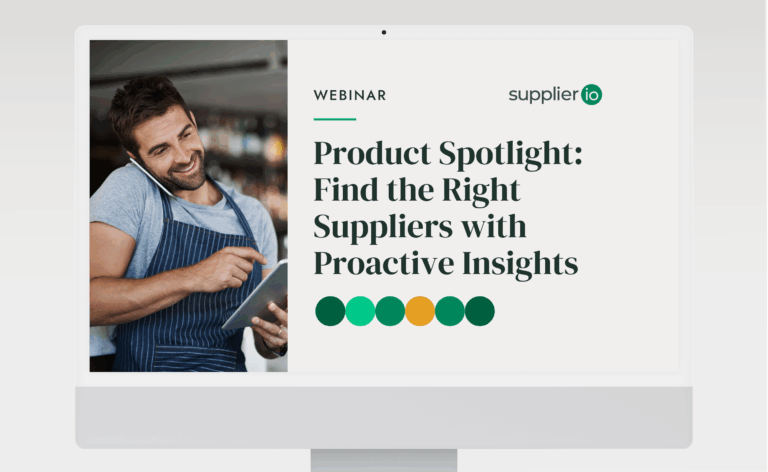The Definitive Guide for Small Businesses
Small businesses are the backbone of the economy and a critical component of any corporate or government sourcing strategy. Let’s explore why.

Small businesses make up 99.9% of all U.S. companies and employ nearly half of the private workforce. They generate 44% of the nation’s GDP and play a critical role in innovation and community growth. This guide will help you understand what it means to be a small business, how certification works, and where to find resources to grow.
Small businesses make a significant impact not just through their numbers, but through job creation, innovation, and community investment. They are often the first to bring new products to market, provide specialized services, and support local economies.
Corporations and government agencies alike are recognizing the importance of engaging small businesses in their supply chains. The federal government has a goal of awarding at least 23% of all prime contracting dollars to small businesses each year.
With special programs and certifications available through the Small Business Administration (SBA) — such as 8(a), HUBZone, Woman-Owned Small Business (WOSB), and Veteran-Owned programs — small businesses today have more pathways than ever to compete for contracts and scale their impact.
Read on to learn more about what classifies a business as a small business, how to get certified, and the resources available to help your business grow.
What is a Small Business?
A small business is defined by the U.S. Small Business Administration (SBA) based on:
- Industry classification (NAICS code)
- Number of employees
- Annual revenue
Standards vary by industry. For example, a manufacturing business may qualify with up to 500 employees, while some service industries qualify at $41.5 million in annual receipts.
You can check your eligibility using the SBA Size Standards Tool.
8(a) Economically Disadvantaged Small Business Requirements
The 8(a) Business Development Program is designed for small businesses owned by socially and economically disadvantaged individuals. The federal government seeks to award at least 5% of all contracting dollars to these businesses each year.
To qualify for the 8(a) program, your business must:
- Be a small business under SBA size standards.
- Not have previously participated in the 8(a) program.
- Be at least 51% owned and controlled by U.S. citizens who are socially and economically disadvantaged.
- Be owned by someone with an average adjusted gross income of $250,000 or less over three years.
- Be owned by someone with $4 million or less in assets.
- Have the owner manage day-to-day operations and long-term decisions.
- Demonstrate good character and show potential for business success.
Learn more and apply here: SBA 8(a) Program
How to Register and Get Certified as a Small Business
To qualify as a small business with the federal government, your company must meet SBA size standards (based on your NAICS code), be independently owned and operated, organized for profit with a U.S. business location, and not be dominant in its field of operation.
Once you confirm eligibility, you’ll need to register with the System for Award Management (SAM.gov). This federal registration is required to bid on government contracts and be recognized for SBA contracting programs.
In addition to federal certification, many corporations look for third-party certifications that independently verify your small business status and increase your visibility in corporate supplier diversity programs. Examples include:
- National Minority Supplier Development Council (NMSDC) – Certifies minority-owned small businesses. Register here
- Women’s Business Enterprise National Council (WBENC) – Certifies women-owned small businesses. Register here
- U.S. Hispanic Chamber of Commerce (USHCC) – Support certification and business development for Hispanic-owned businesses. Register here
While SBA certification is essential for federal opportunities, third-party certifications can expand your access to corporate supply chains, helping your business stand out to large buyers.
SBA Certification and Verification
If you wish to compete for set-aside and sole-source contracts made available through federal contracting programs, your business must be certified through the U.S. Small Business Administration (SBA). These programs are governed by federal regulations that define small business eligibility, ownership, and control.
Learn more about SBA small business certification and contracting assistance programs here: SBA Certification Programs
Education, Funding, and Contracting Resources
Education and Training
Fortunately, both government and private institutions recognize the value of small supplier engagement and are investing in supplier development to help small businesses grow and develop into qualified sourcing partners. Whether you’re just starting out or scaling an established company, these educational resources can help your small business succeed.
Small Business Development Centers (SBDCs)
America’s SBDCs provide free, confidential consulting and training in areas such as business planning, marketing, regulatory compliance, and access to capital. With nearly 1,000 centers nationwide, SBDCs are one of the most accessible resources for small business owners.
Learn more here: Find Your Local SBDC
SCORE
SCORE is a nonprofit resource partner of the SBA that provides free mentoring from experienced executives and entrepreneurs, plus workshops and online training for small businesses.
Learn more here: SCORE
SBA Learning Center
An online library of free courses covering how to write business plans, secure funding, manage growth, and sell to the government.
Explore courses here: SBA Learning Center
Contracting Assistance Programs
8(a) Business Development Program
The 8(a) program is a nine-year initiative for socially and economically disadvantaged small businesses. It provides training, mentorship, and access to set-aside contracts, including sole-source awards up to $4M for services and $6.5M for manufacturing. Participants can also form joint ventures to pursue larger contracts.
Learn more here: SBA 8(a) Program
HUBZone Program
The HUBZone program helps small businesses located in historically underutilized business zones gain preferential access to federal contracts. To qualify, your principal office must be located in a HUBZone and at least 35% of employees must live in HUBZone areas.
Learn more here: SBA HUBZone Program
Women-Owned Small Business (WOSB) Program
The WOSB program provides women-owned businesses with access to set-aside federal contracts in industries where women are underrepresented. Certification can be completed through the SBA or an approved third-party certifier.
Learn more here: SBA WOSB Program
Funding
SBA Guaranteed Loans
The SBA partners with approved lenders to provide loans with competitive rates and terms, backed by SBA guarantees. These include 7(a) loans for working capital, 504 loans for real estate and equipment, and microloans for smaller funding needs.
Learn more here: SBA Loan Programs
Grants.gov
A federal portal listing more than 1,000 grant programs available through U.S. government agencies.
Explore funding here: Grants.gov
Crowdfunding
Crowdfunding platforms like Kickstarter, Indiegogo, and GoFundMe allow small businesses to raise capital directly from customers and investors while building awareness of their products and services.
Learn more here: SBA Guide to Crowdfunding
Contracting Opportunities
Both the federal government and many Fortune 1000 companies require procurement teams to spend a percentage of their budgets with small and diverse suppliers. Once certified, your business can access these opportunities through government and corporate platforms.
SAM.gov
The official federal contracting portal where businesses can register and compete for opportunities.
Explore here: SAM.gov
Supplier.io Supplier Registration Portal
Used by Fortune 1000 corporations to find, verify, and connect with certified small suppliers.
Register here: Supplier.io Registration (SupplierOne)
Signature Events & Networking Opportunities
National Small Business Week
Hosted annually by the SBA, this event celebrates small business contributions and provides workshops, training sessions, and networking with buyers and fellow entrepreneurs.
Learn more here: National Small Business Week
Local Chambers of Commerce
Regional and local chambers host small business expos and networking events, offering visibility with local buyers and potential business partners.
Find your chamber: U.S. Chamber Directory
Additional Resources
Minority Business Development Agency (MBDA)
A U.S. Department of Commerce agency that helps minority-owned businesses grow through business centers, capital access programs, and federal contracting support.
Learn more here: MBDA
APEX Accelerators (formerly PTACs)
A nationwide network of centers that help small businesses navigate federal, state, and local contracting. Services include bid matching, compliance assistance, and proposal reviews.
Learn more here: APEX Accelerators
America’s Small Business Development Centers (ASBDC)
A national association representing SBDCs across the U.S. offering free one-on-one advising, training, and research tools to help small businesses compete and grow.
Learn more here: ASBDC
What should you do next?
Certification as a small business is meaningful a gateway to growth. By becoming certified, attending national events, and leveraging resources from the SBA and Supplier.io, your business can access federal contracts, corporate supply chains, and new opportunities to scale.
Ready to take the next step? Register with Supplier.io today to connect with over 2,000 corporations actively seeking small business suppliers.




